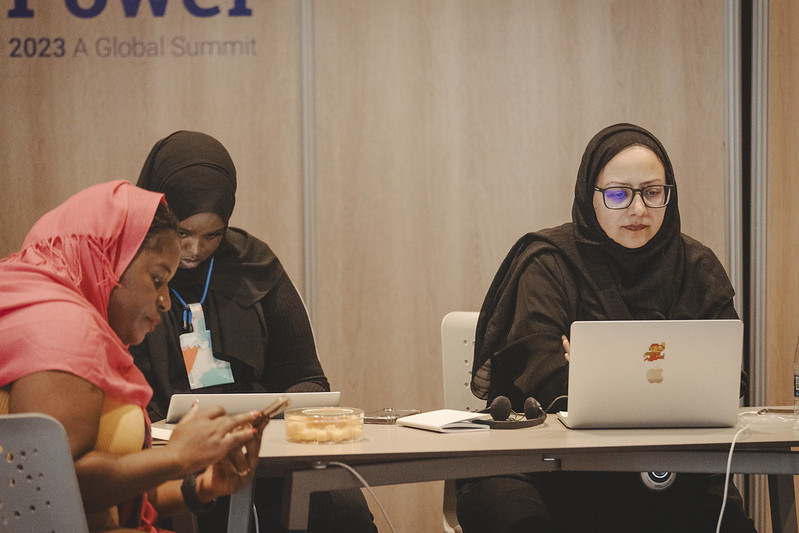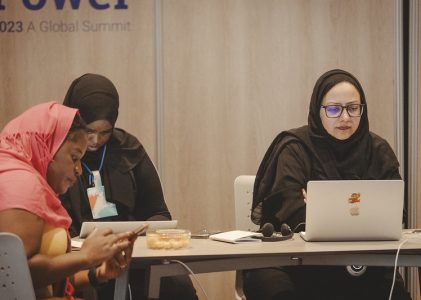
Masarat Daud
“I come from a very small village with barely any educational facilities. When I sit in this conference here, it is difficult for me to explain the lack of access I had to quality infrastructure while growing up.”
“Then this is where you find your tribe. The people who inspire you, push you to think further, and comfort you – these are the people you connect with here, and help guide you through life.”
This was one of the many diverse conversations I’ve had at #ShiftThePower Summit in Bogota, taking place December 5 to 7, 2023. To rally people around a hashtag-turned-into-a- movement is no easy feat. The conference was in English and Spanish and both sections felt included – really quite telling of how languages have the power to include and exclude.
But what is #ShiftThePower? It is just as a hashtag is – we give it meaning based on where we are at. Degan Ali, the ED of Adeso, and a key voice in the decolonization of aid and philanthropy movement, recently mentioned that she sees three specific ‘movements’ as a continuum: localization, to #ShiftThePower, to Decolonization.
Localization, #ShiftThePower, Decolonization
If we view this as a journey and not as an individual, separate outcome, it makes for a thought worth reflecting on. During one of the sessions at the Summit, an attendee shared that they had met someone at a previous session, who had never heard of decolonization. While at a separate breakfast conversation, another attendee said that they had a great conversation with someone from Columbian civil society on how they had their decolonization journey in the 1960s!
#ShiftThePower, at its foundation, is a cry for change. It is the need to shift from the status quo and it is the quest that is to take an individual and/or organization to decolonization. While not a structured movement as yet, #ShiftThePower has become the connector conversational space that puts an individual and/or an organization on its own journey of transformation. Its nine-point manifesto acts as a guiding light towards this.
Shifting the status quo on an organizational or societal level cannot happen without it happening on an individual level first.
But here’s what I am curious about: any kind of shifting power, shifting the status quo on an organizational or societal level cannot happen without it happening on an individual level first. When something moves within us, we cannot unsee the disparities and it becomes imperative to uplift those changes from an individual level to an organizational, and then the societal level.
So when I hear people talk about the many things that #ShiftThePower means to them, and what their ambitions are for a collective change – I first ask: what shift are you making as an individual to undo the unnecessary baggage we have received over the generations? What individual change are you shifting to create the bigger change?
Without changing ourselves – acknowledging that most of us are reeling from years of colonial baggage as the carriers, and even the ones who were the givers – what are you undoing in this generational legacy to identify what power you want shifted, and where to?
These are big questions and they emerge from gatherings like #ShiftThePower where psychologically safe spaces are created to exchange thoughts, to challenge, to learn, to hear of new ways of being from people at various stages of realizations and action.
I hope to see #ShiftThePower Summits become an annual affair, and as Adeso, we are very proud to be partners with Global Fund for Community Foundations and the #ShiftThePower movement.
This year, we were not only part of the Summit’s Advisory Committee, playing a key role in shaping the event, but I also had the opportunity to be part of the Summit Communications group, leading the overall social media strategy and coordination at the event. I also had a great time co-leading the breakout session by Collective Change Lab on power of storytelling in community transformation and power dynamics.
We look forward to being part of the next Summit. See you at the next one!
Masarat Daud is the Senior Communications and Advocacy Lead at Adeso and a version of this article was first published by Adeso.
